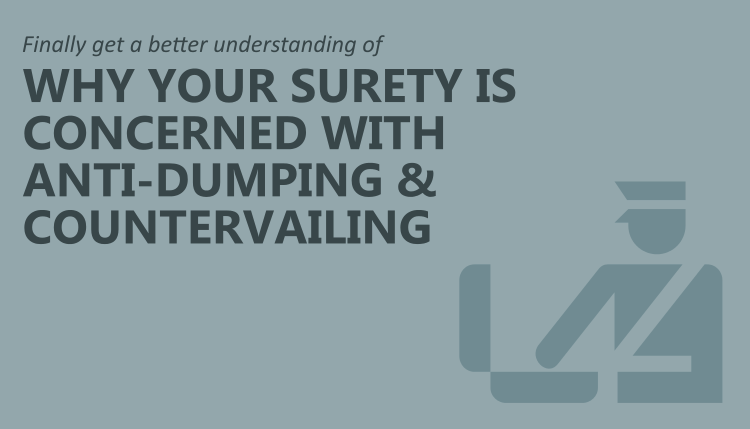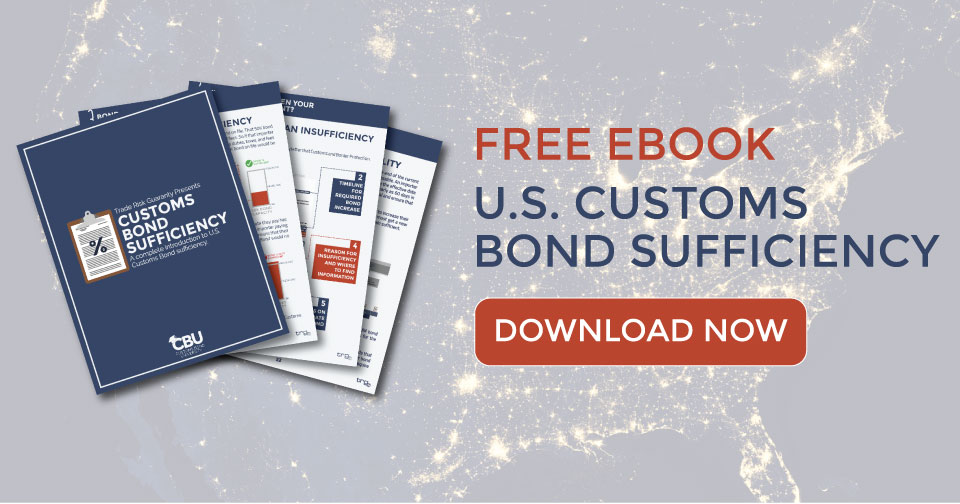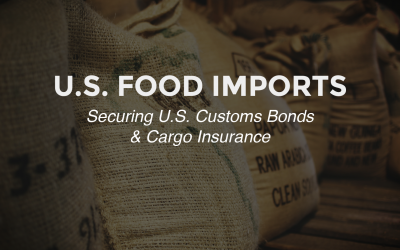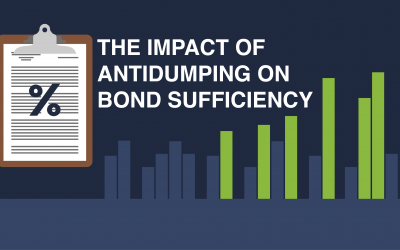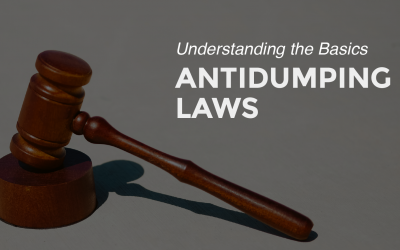Understanding why Customs bond providers and Sureties have an increased concern for imported goods subject to anti-dumping and countervailing duties can help importers navigate through the confusing process of importing these commodities.
Importing goods subject to Anti-dumping and Countervailing duties (AD/CVD) can increase the difficulty of securing a Customs Bond from a Surety. In these cases, many sureties may require financial statements, collateral, or other forms of financial backing before providing a bond for these AD/CV commodities. As an importer, this can be a frustrating extra step that may seem unnecessary if you don’t understand the Surety’s increased risk involved when providing a bond for a company importing goods with anti-dumping and countervailing duties.
Why Sureties are Concerned with Anti-dumping and Countervailing
Anti-dumping and Countervailing entries are a concern for Customs bond providers & sureties for two main reasons:
- The initial AD/CV duty you pay acts as an estimated deposit. The final duty rate is subject to change upon completion of the investigation conducted by the Department of Commerce (DOC). The final duty rate determined could be exponentially higher than the deposit rate that was paid (with no limit), which may result in additional monies owed to Customs.
- Since the liquidation process for these entries is suspended indefinitely while the investigation is carried out, it can take several years or more for these entries to liquidate and for the final duty rate to be determined. The bond guarantees payments to Customs (up to the full bond amount) over the course of a calendar year between the anniversary dates, so when entries are suspended for multiple years, liability remains open from past bond periods. Consequently, a surety company can be exposed to liability from multiple bonded years, resulting in aggregate liability greater than the amount of the bond.
What is Required to Secure a Customs Bond when importing AD/CV Goods?
Since the AD/CV duties can be exponentially higher upon liquidation than the initially deposited duties, the surety will require financial underwriting to ensure the company’s ability to pay any potential monies owed to Customs, in many cases resulting in the requirement of collateral. Depending on the financial position of the company, and the amount of liability that the surety is exposed to, the surety may request additional security from the bond principal.
Additional security is often requested in the form of corporate indemnity of a parent company, a personal indemnity of the owner(s), or collateral in the form of an Irrevocable Letter of Credit (ILOC) or a cash deposit.
Who to Contact for More Information on Anti-dumping and Countervailing Duties
The primary broker who is employed to file entries on behalf of the bond principal may have more information on a specific AD/CVD commodity and case. Use the following link to access the AD/CVD search system.
For additional information on anti-dumping and countervailing, see the definition from Customs and Border Protection.

